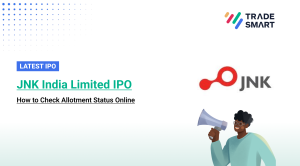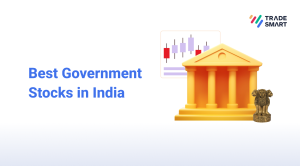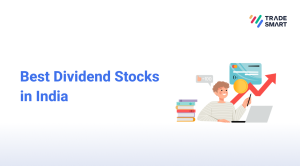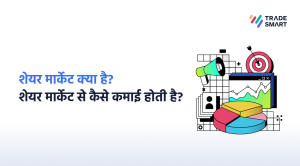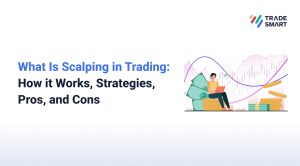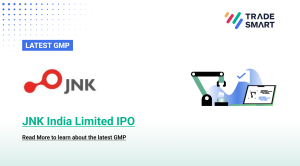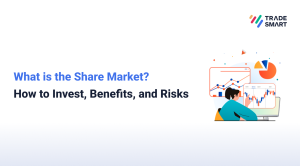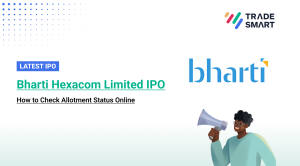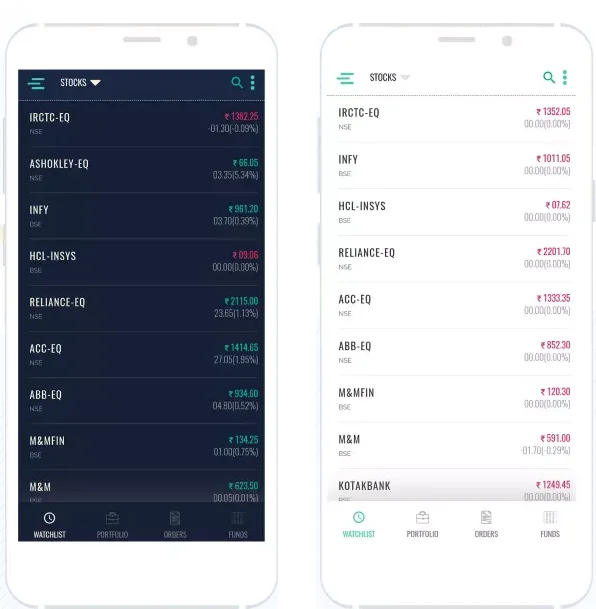
A History of Commodity Trading
Commodity trading means the selling and buying of metals, raw materials, food grains, oil, etc. In some countries, this business includes the trading of meat and poultry as well. This article traces the origins of the commodity trading industry in India. You will also find answers to questions like, “how to trade commodities” and the “basics of commodity trading in India”.
Indians have been trading in commodities for several centuries. In fact, India had had a market regulator for the commodities market way back in the 1870s. The Bombay Cotton Trade Association, set up in 1875, laid the foundations of futures trading in the country. In 1893, a few merchants parted ways with this organization and set up the Bombay Cotton Exchange. Seven years later, some traders set up the Gujarati Vyapari Mandli for futures trading in castor oil, nuts, and cotton.
Over a period, the government intervened in this market and gradually established control over the commodities market. Currently, the Securities and Exchange Board (SEBI) is the market regulator in this vertical. If you have never invested in the Indian commodities market, this article will be helpful.
What is commodity trading?
Commodity trading in India is usually done through special contracts, such as futures and options. Every contract in the commodity market derives its value from the underlying asset, which is the commodity. This is one of the most important basics of commodity trading in India.
It should be noted that the underlying asset is always a primary or raw material, such as oil, gold, etc. Every commodity is traded in lots. These could be barrels (oil), kilograms (wheat), or bushels (maize or corn). Upon maturity of the contract, you can either take delivery of the physical commodity or settle in cash.
Investors can also gain from the price fluctuations in commodities without investing in futures or other instruments. This can be done through exchange-traded notes or by exchange-traded funds.
Currently, you can trade your favorite commodities on MCX or Multi Commodity Exchange. There are other platforms as well, they are:
- National Multi Commodity Exchange
- Indian Commodity Exchange
- Ace Derivatives Exchange
- The Universal Commodity Exchange
- National Commodity and Derivatives Exchange
Keep reading this guide to get more information on “how to trade commodities”.
Types of commodities
Broadly, two kinds of commodities can be traded in India – Hard and Soft. The former includes metals, oil, etc. These materials are extracted from the Earth. On the other hand, soft commodities include oil, food grains, fibers, sugar, etc.
Please note that each commodity exchange allows for trade in specified materials and commodities. For example, the MCX allows trade in the following materials:
- Bullion- Silver, Gold
- Energy- Natural Gas and Crude Oil
- Base Metals- Brass, Copper, Aluminium, Nickel, Zinc, and Lead.
- Agriculture- Palmolein, Pepper, Cardamom, Castor Seed, Cotton, etc.
The NCDEX allows the following commodities to be traded on its platform:
- Pulses and cereals, such as Chana, Barley, Maize, etc.
- Fibers- Kapaas and Cotton
- Oil and Oilseeds- Castor oilseed, Mustard seed, Crude palm oil, Refined soy oil, etc.
- Sugar
- Spices- Turmeric, Jeera, Pepper, etc.
This section on commodity trading basics does not cover all the exchanges. However, it is a good starting point for all the new commodity investors.
Commodities market characteristics
Every market is unique and has a few characteristics. If you are grappling with the question “how to invest in the commodity market?” we have the answer for you.
Price – The price of every commodity is determined by its demand and supply. High demand and low supply increase the price of a commodity and vice versa.
Seasonality – Commodity prices also depend upon seasonality. For example, oil prices increase during the summers because more people drive for their vacations. On the other hand, maize prices reach a low during September and October after all the crop has been harvested.
Government policies – A particular government policy regarding a commodity can raise or reduce its price. This is one of the most important features of any commodity market.
This market is also marked by Leverage and Speculation. Traders often use very high leverage ratios, sometimes 10:1 in these markets.
How to trade commodities
To begin commodity trading in India, you need the following:
- A Demat and trading account with a reliable broker.
- A basic understanding of the Indian commodity market and its behavior.
Opening a Demat account is easy and takes just a few minutes. You just need to give your email address and the details of your Aadhar and PAN cards to your broker.
The best way to start investing in the commodity markets is through futures contracts. In a commodity futures contract, you agree to sell or buy a commodity at a specific rate or price on a specific date. You can find futures for commodities on every exchange, such as the MCX.
Though commodity trading is risky, you can get expert advice from your broker and create wealth in this sector. Next, we look at the question “how to trade commodities”.
Should you invest in commodities
There are several arguments for investing in the commodity market.
First, this form of investment is good for investors who want to benefit from inflation. During inflation, the prices of goods go up, and so do the prices of the commodities. Thus, inflation is a good time to make profits.
Secondly, commodity trading is also a good bet against the U.S. dollar. This means that when the dollar declines, commodity prices go up, and you make a profit.
Commodity trading can maximize your gains as well. Though this form of investing is dependent upon several factors, such as interest rates, the global economy, fluctuations in the market through exchange rates, etc., the overall global demand always remains high enough. All this has an overall positive effect on companies investing in commodities which means investors always make better returns.
This trading also provides high leverage, which means even a small price rise can result in huge profits.
However, leverage can be a double-edged sword. Traders who haven’t been sufficiently trained in leverage can post huge losses.
Many commodity funds are focused on just one or two industries, which does not provide sufficient diversification.
We have some more information on “how to invest in the commodity market”.
Using futures to invest in commodities
Since the prices of commodities fluctuate daily or weekly, futures contract prices change as well.
If the price of an underlying asset goes up, the holder of the futures contract makes money. He receives the product (oil, grains, etc.) at the lower, agreed-upon price and can sell the same product at the current market price.
On the other hand, if the price of the said commodity falls, the futures seller makes a profit. He can buy it at market price and then sell the same material to the futures buyer at the higher negotiated price.
Commodity traders fulfill the contract by doing either of two things. Either they submit the proof that the commodity has reached the warehouse or pay the cash difference. There are other ways on how to invest in commodities online.
Using stocks to invest in commodities
Investors can also buy stocks in the companies that trade in commodities. This way, they can benefit indirectly from the movements of the commodity prices. For example, you could buy stocks of energy companies, companies buying and selling bullion, or those engaged in food grain trading.
However, you need to open a Demat and trading account for this purpose. As explained earlier, it is very easy to create this account, and all you have to do is submit your PAN and Aadhar details to your broker.
Please note that a commodity-producing company won’t fall or rise with its output. Its stock price would greatly depend upon its contracts with high-demand buyers.
Using ETFs and notes to invest in commodities
You can also invest in the commodity markets using ETFs and notes. An Exchange Traded Fund is a special security that tracks a commodity, sector, index, or any other asset. You can buy or sell an ETF on any stock exchange the same way you trade a regular stock. You can customize or structure your ETF to track a single commodity or a diverse and large range of securities.
Investment notes are non-equity instruments. You can invest and earn from these instruments when their prices decrease or increase till the time they don’t reach a predefined limit. There is no guarantee you will get the nominal value of your investment note.
Using mutual and index funds to invest in commodities
Another way to invest in the Indian commodity market is through the index and mutual funds. Let’s understand both these funds.
Basically, an index fund is a special type of ETF or a mutual fund that tracks the components of financial market indices, such as the S&P 500. This fund has a lower risk, low operating expenses, and provides broad market exposure. Index funds follow their own benchmarks irrespective of the state of the outlying market.
You can also invest in the commodity markets through mutual funds. These funds collect money from various investors and spend that money on stocks, money market instruments, bonds, etc. Every mutual fund has a pre-defined objective and is focused on one or a few industries including commodities. Each shareholder of a mutual fund gains or loses money in the ratio of his investments.
Using commodity pools and managed futures to invest in commodities
A commodity pool is a special financial instrument that combines individual investor contributions to trade in futures and commodities markets. Investors use commodity pools to gain leverage and maximize their profits. These instruments are also called Managed Future Funds in some countries. In this instrument, the risk to the investor is in the ratio of his investments in that commodity pool. You can also say that Managed Futures or Commodity Pools mirror Mutual Funds to some extent.
In fact, many hedge funds are actually commodity pools. Note that these special instruments do not invest in stocks at all. Rather, these funds are focused on the commodity markets, and invest in a basket of commodity options and futures. Unlike the futures, options are more customer-friendly and have more expiration dates.
The main advantage of joining a commodity pool is that you join a set of like-minded investors and increase your purchasing power. For example, having a purchasing power of Rs 10 lakh is more than a purchasing power of Rs 10,000 only. This way you increase your leverage in the commodity market. Commodity pools in India are regulated by the SEBI.
